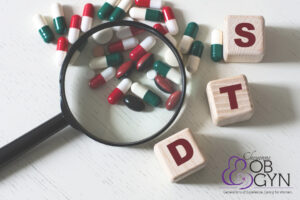It’s STD Awareness Month. Get Educated, Not Infected.

In honor of April being National STD Awareness Month, we want to encourage patients to educate themselves on STDs, and to get tested if you feel you could possibly have been exposed.
STD stands for sexually transmitted disease. An STD is an infection that is passed on from one person to another generally through sexual contact. Few STDs like herpes and HPV can be spread simply through skin-to-skin contact.
The rate of STDs remained high even during the first year of the pandemic. According to the Centers for Disease Control and Prevention, 2.4 million cases of chlamydia, gonorrhea, and syphilis were reported in 2020.
Signs of an STD:
An STD will start as a sexually transmitted infection (STI) and can develop into a disease. The disconcerting issue is that not all infections or STDs will cause symptoms. It is possible to be infected and not be aware of it. If symptoms do arise, they may include:
- Painful urination
- Rash or sores around the vagina or mouth
- Unusual discharge or bleeding from the vagina
- Abnormal vaginal odor
- Itching and redness in the genital area
For the most part, an STI or STD can be treated. Bacterial STIs, like chlamydia, gonorrhea, and syphilis, can be cured with antibiotics. For viral diseases like herpes and HIV, medications can help fight symptoms and bring some relief, but they will not cure the disease.
The best way to prevent or reduce your risk of contracting an STI or STD is by abstaining from sex, using condoms, and making sure you and your partner have both tested negative for STDs or STIs before engaging in sexual activity.
If you have any inclination that you may have a sexually transmitted infection or disease, please contact our office to schedule an examination.

Leave a Reply